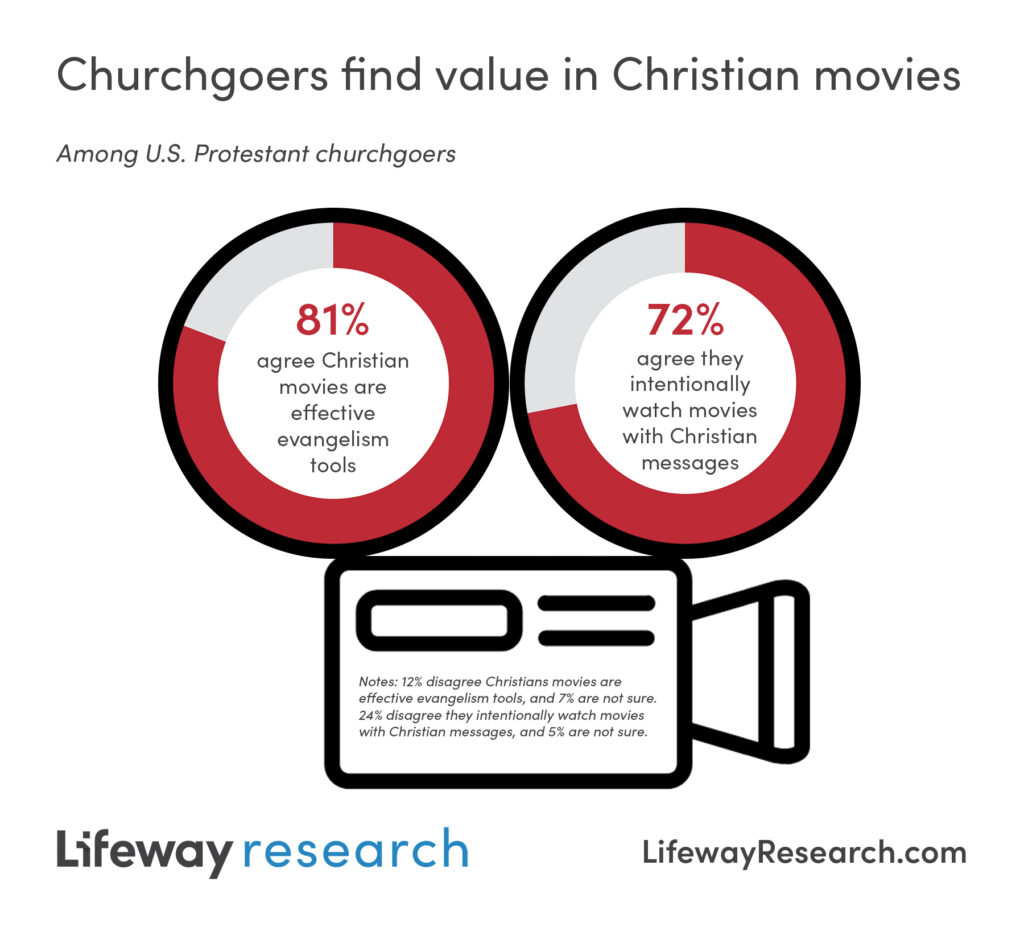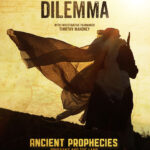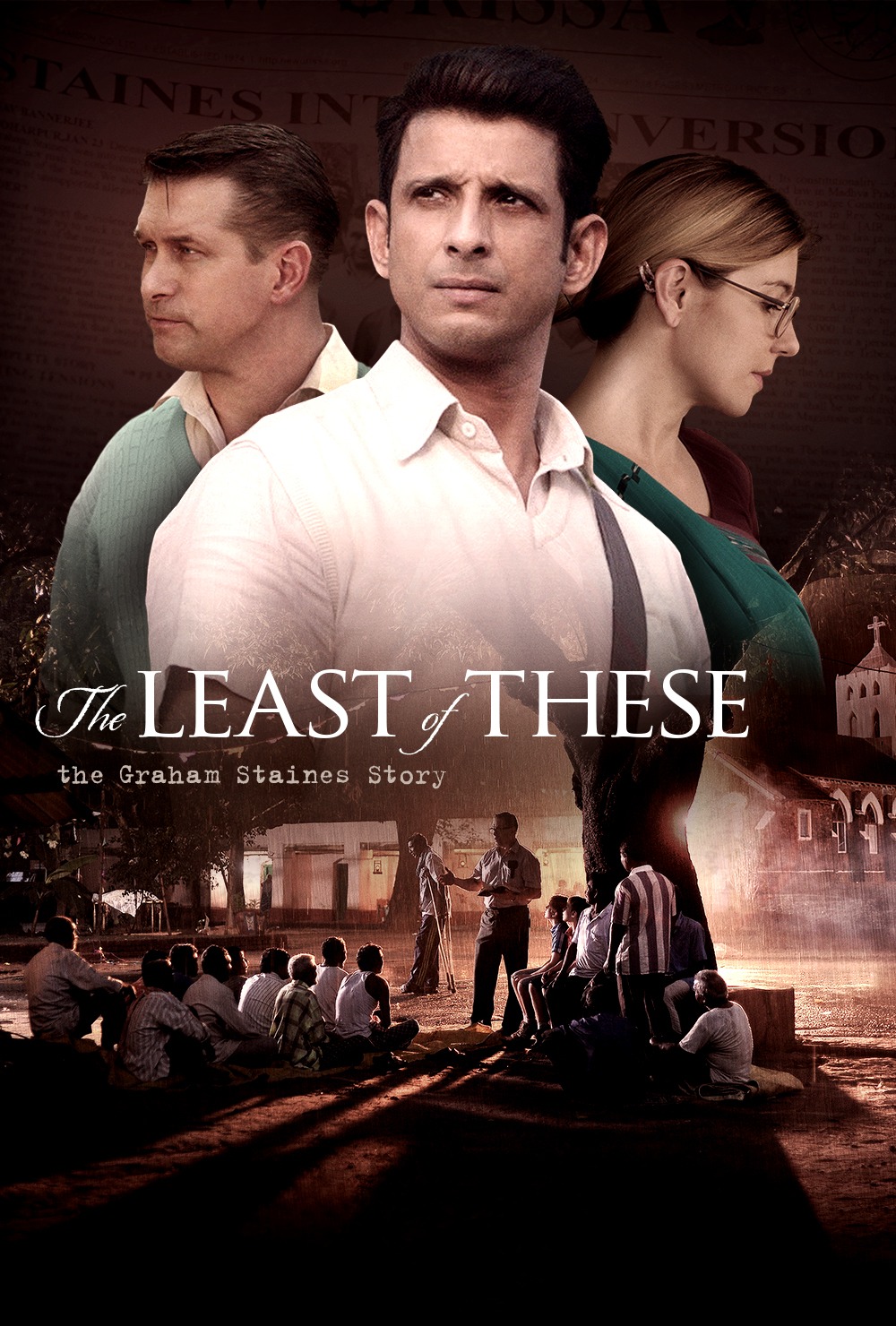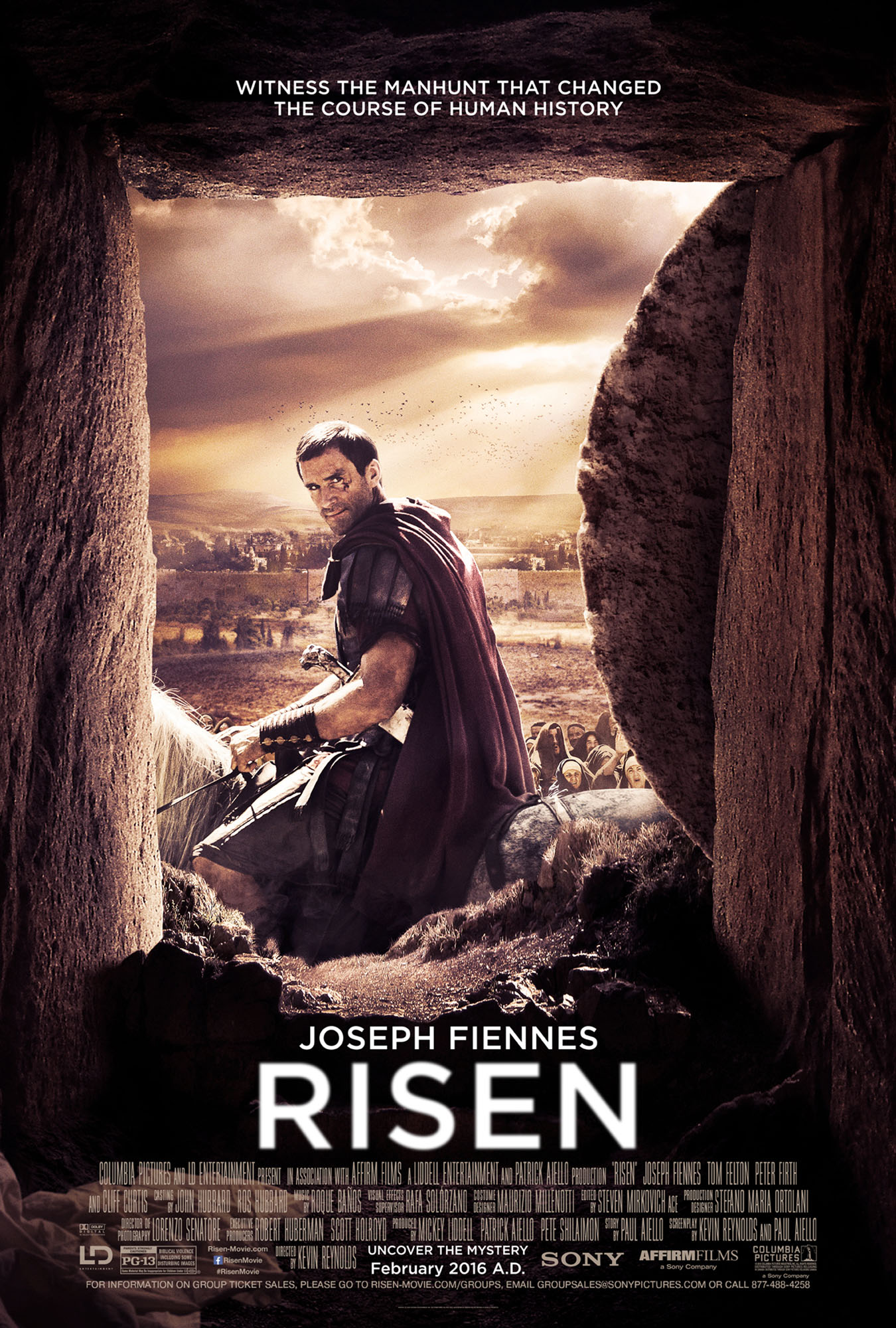
BRENTWOOD, Tenn. (BP) – Not only are churchgoers watching Christian movies, but some find them useful as an evangelistic and discipleship tool.
A recent study by Lifeway Research finds 68 percent of American Protestant churchgoers have watched a Christian movie in the last year. Around 4 in 5 (81 percent) say Christian movies are effective evangelism tools.
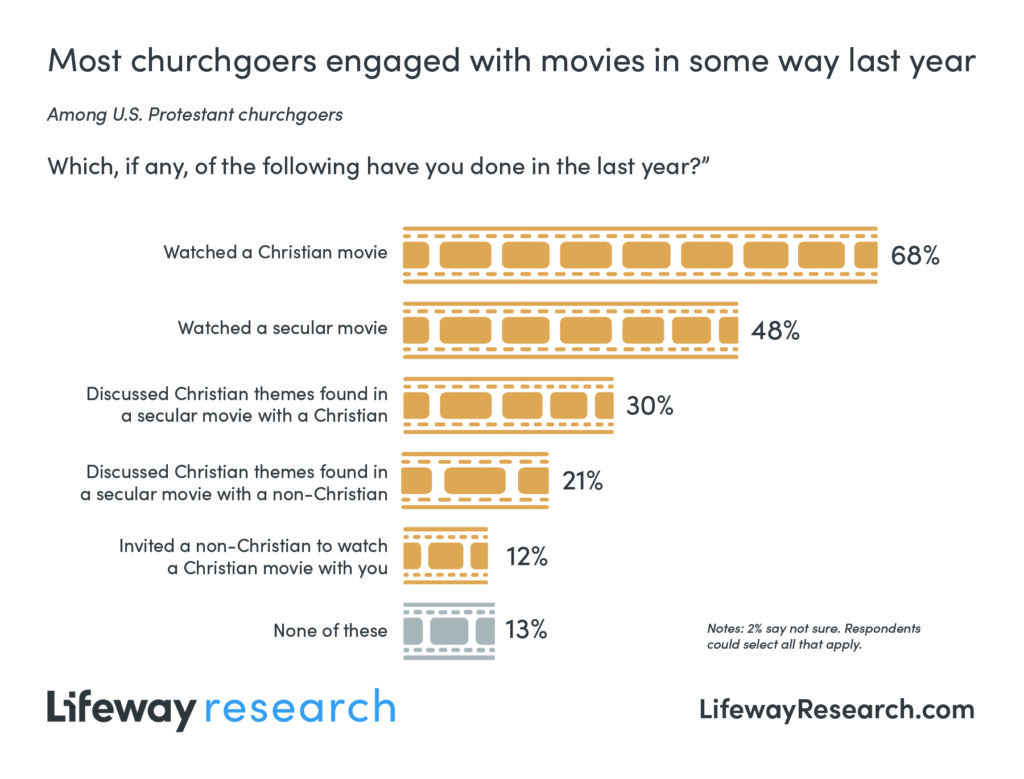
“The Forge,” the latest film from the Kendrick brothers, releases in theaters nationwide this Friday, Aug. 23. The movie focuses on issues central to evangelism and discipleship. Stephen Kendrick, co-producer of “The Forge,” believes Christian movies can play a role in those fundamental aspects of the Christian walk.
“We live in a visual, video-driven generation. Movies can be great tools to reach people where they are and share biblical truth in the context of an emotional and memorable story,” Kendrick said. “Countless people have come to Christ through watching a Christian movie. The Holy Spirit continues to use art to point to the glory of Christ and the Gospel.”
Evangelism on the big screen
The study asked churchgoers if they agree with the statement, “Christian movies are effective evangelism tools.” Baptist (84 percent) and non-denominational (84 percent) churchgoers are more likely than Lutheran (75 percent) and Presbyterian/Reformed (68 percent) churchgoers to believe Christian movies are effective evangelism tools. Those with evangelical beliefs are also more likely than those without such beliefs to agree (90 percent v. 71 percent).
“It can be easy for Christian resource providers to design resources they hope are helpful, but Christian movies are something churchgoers want to see,” said Scott McConnell, executive director of Lifeway Research. “They don’t assume every Christian movie is a fit for non-Christians they know, but they agree films can be an effective way to share the Gospel.”
More than 1 in 10 churchgoers (12 percent) have invited a non-Christian to watch a Christian movie with them in the last year. Younger churchgoers, aged 18-34 (26 percent) and 35-49 (21 percent), are more likely than those 50-64 (8 percent) and 65+ (3 percent) to say they have offered such an invitation. Non-denominational (15 percent), Baptist (14 percent) and Restorationist movement churchgoers (14 percent) are more likely than Lutheran (3 percent) and Presbyterian/Reformed churchgoers (3 percent). White churchgoers (9 percent) are the least likely ethnicity to have invited a non-Christian to a Christian movie.
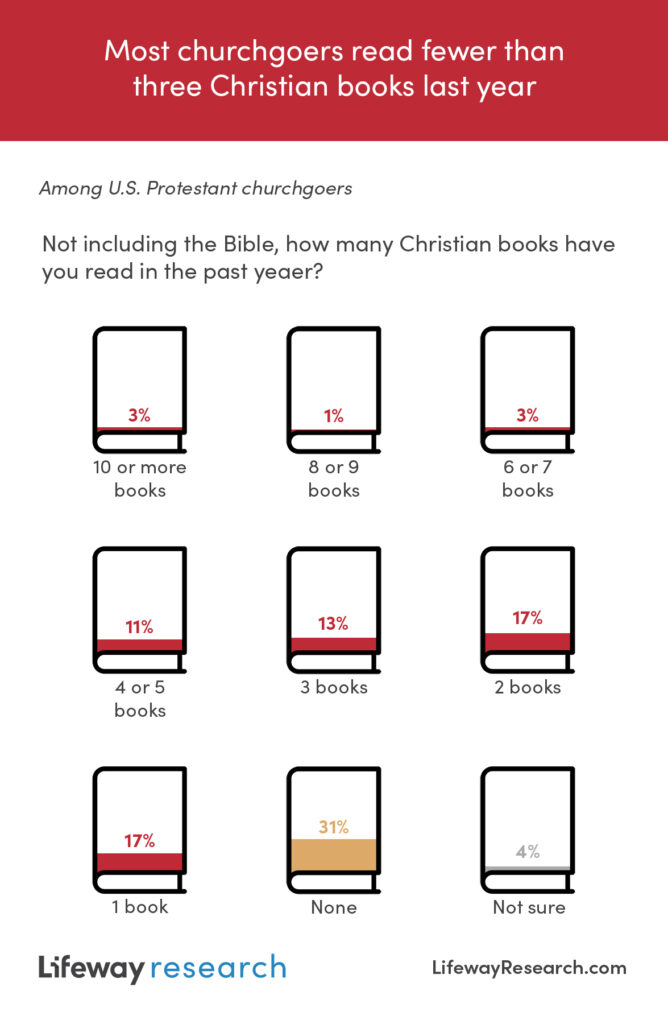
Additionally, almost 3 in 4 churchgoers (72 percent) say they intentionally watch movies with Christian messages. Fewer mentioned Christian themes found in a secular movie with a Christian (30 percent) or non-Christian (21 percent).
While more than 2 in 3 churchgoers (68 percent) say they have watched a Christian movie in the past year, less than half (48 percent) say the same about a secular movie – a stat that may be misleading.
“Our intention in asking churchgoers if they watch secular movies was to contrast viewership of movies that are not overtly Christian themed,” McConnell explained. “However, it’s clear some churchgoers may not have been familiar with this use of the term ‘secular’ and others may have thought it was seeking to contrast movies that are overtly anti-Christian.”
Turning the page on discipleship
While many churchgoers see movies as discipleship and evangelism tools, some also turn to books for spiritual growth. Around 2 in 3 churchgoers say they have read at least one Christian book not including the Bible in the past year.
Close to 1 in 6 (17 percent) say they read one Christian book recently. Another 17 percent say they read two this past year. Fewer say they’ve read three books (13 percent), four or five (11 percent), six or seven (3 percent), eight or nine (1 percent) or 10 or more (3 percent). Three in 10 (31 percent) admit they haven’t read any Christian books in the past year, while 4 percent aren’t sure.
Older churchgoers, those aged 65 and older (37 percent), are more likely than those 18-34 (25 percent) and 35-49 (26 percent) to say they haven’t read any Christian books in the past year. More than a third of white churchgoers (34 percent) say they haven’t read one in the past year, compared to a quarter of African American churchgoers (25 percent). Lutherans (50 percent) are more likely than Presbyterian/Reformed (34 percent), Baptists (26 percent) and non-denominational churchgoers (25 percent) to select “none.” Those who attend a worship service one to three times a month (36 percent) are more likely than those who attend four or more times a month (28 percent) to say they haven’t read any books in the past year. Additionally, those without evangelical beliefs are more likely than those with evangelical beliefs to have skipped the books recently (38 percent v. 25 percent).
Kendrick believes Christian books can be an excellent follow-up to watching a Christian movie. “After the emotion of a movie ends, a Christian resource can bridge them to what the Word of God instructs about a topic or issue they are facing,” he said. “Our hope is that people will see a film and be inspired to dive into a resource that will help them be transformed by the renewing of their minds.”
Kendrick said this has happened repeatedly with their previous films. “We praise God that countless marriages were saved through the combination of the movie ‘Fireproof’ and the follow up book ‘The Love Dare.’ The movie ‘Courageous’ inspired men to read ‘The Resolution for Men,’ and countless prayer ministries have been blessed by the movie ‘War Room’ and the follow-up resource, ‘The Battleplan for Prayer,’” he said. “We believe ‘The Forge’ movie and its follow-up resources will become a powerful suite of tools to help local churches more effectively disciple the next generation.”
For more information on the research study, view the complete report and visit LifewayResearch.com. To find resources related to “The Forge,” including specifically curated Bible studies and books, visit Lifeway.com/TheForge.
Methodology
The online survey of 1,008 American Protestant churchgoers was conducted Sept. 19-29, 2023, using a national pre-recruited panel. Respondents were screened to include those who identified as Protestant/non-denominational and attend religious services at least once a month. Quotas and slight weights were used to balance gender, age, region, ethnicity, education, and religion to more accurately reflect the population. The completed sample is 1,008 surveys. The sample provides 95 percent confidence that the sampling error from the panel does not exceed plus or minus 3.2 percent This margin of error accounts for the effect of weighting. Margins of error are higher in sub-groups.
Evangelical Beliefsare defined using the National Association of Evangelicals/Lifeway Research Evangelical Beliefs Research Definition based on respondent beliefs. Respondents are asked their level of agreement with four separate statements using a four-point, forced-choice scale (strongly agree, somewhat agree, somewhat disagree, strongly disagree). Those who strongly agree with all four statements are categorized as having Evangelical Beliefs:
- The Bible is the highest authority for what I believe.
- It is very important for me personally to encourage non-Christians to trust Jesus Christ as their Savior.
- Jesus Christ’s death on the cross is the only sacrifice that could remove the penalty of my sin.
- Only those who trust in Jesus Christ alone as their Savior receive God’s free gift of eternal salvation.
